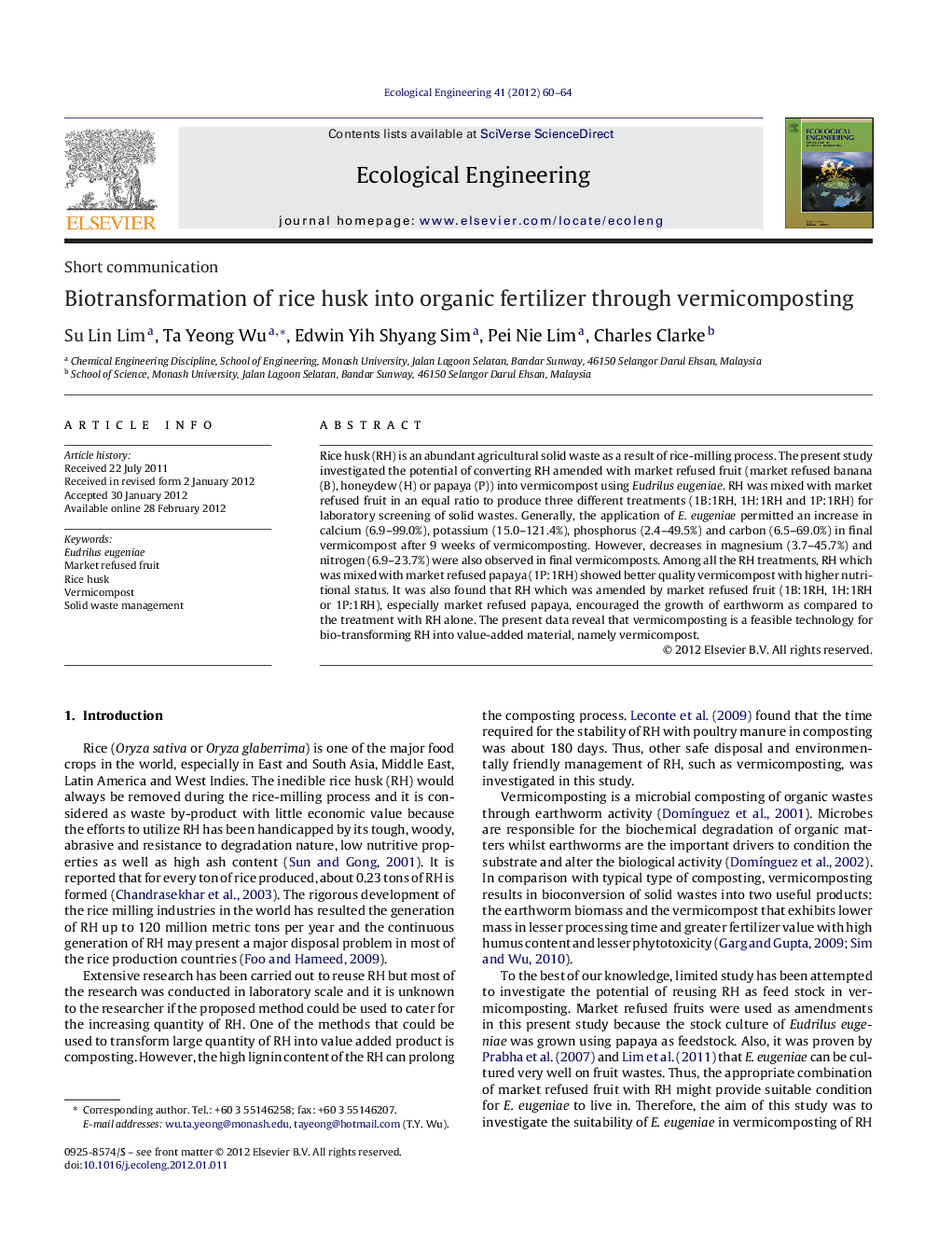| Article ID | Journal | Published Year | Pages | File Type |
|---|---|---|---|---|
| 4390079 | Ecological Engineering | 2012 | 5 Pages |
Abstract
Rice husk (RH) is an abundant agricultural solid waste as a result of rice-milling process. The present study investigated the potential of converting RH amended with market refused fruit (market refused banana (B), honeydew (H) or papaya (P)) into vermicompost using Eudrilus eugeniae. RH was mixed with market refused fruit in an equal ratio to produce three different treatments (1B:1RH, 1H:1RH and 1P:1RH) for laboratory screening of solid wastes. Generally, the application of E. eugeniae permitted an increase in calcium (6.9-99.0%), potassium (15.0-121.4%), phosphorus (2.4-49.5%) and carbon (6.5-69.0%) in final vermicompost after 9 weeks of vermicomposting. However, decreases in magnesium (3.7-45.7%) and nitrogen (6.9-23.7%) were also observed in final vermicomposts. Among all the RH treatments, RH which was mixed with market refused papaya (1P:1RH) showed better quality vermicompost with higher nutritional status. It was also found that RH which was amended by market refused fruit (1B:1RH, 1H:1RH or 1P:1RH), especially market refused papaya, encouraged the growth of earthworm as compared to the treatment with RH alone. The present data reveal that vermicomposting is a feasible technology for bio-transforming RH into value-added material, namely vermicompost.
Related Topics
Life Sciences
Agricultural and Biological Sciences
Ecology, Evolution, Behavior and Systematics
Authors
Su Lin Lim, Ta Yeong Wu, Edwin Yih Shyang Sim, Pei Nie Lim, Charles Clarke,
